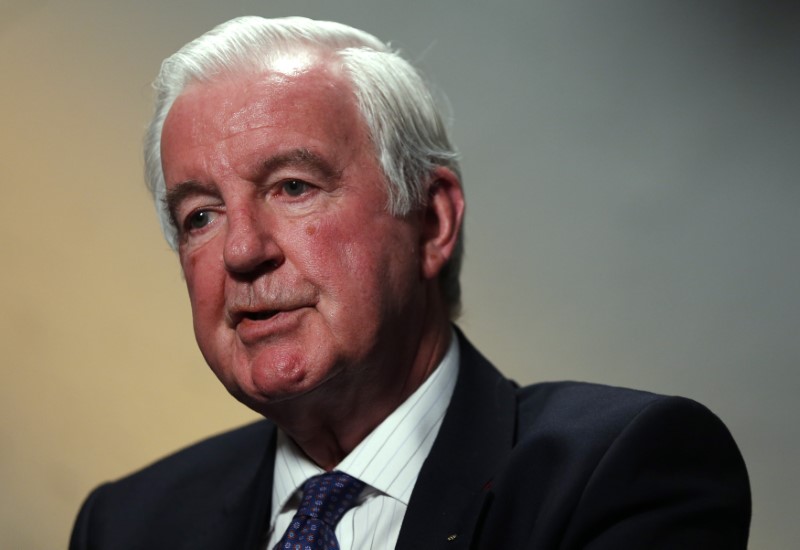By Christian Radnedge
LONDON (Reuters) - Russia has made progress in its fight against drug cheats, but still needs to admit it had a problem before it can be declared completely compliant, the president of the World Anti-Doping Agency (WADA) Craig Reedie told Reuters on Thursday.
It is one month since WADA lifted its suspension of RUSADA, Russia’s anti-doping agency, which was banned from testing in November 2015 after an independent investigation accused it of systematically violating anti-doping regulations.
That was before the release of a more thorough and damning WADA commission report last year by Richard McLaren. This alleged a state-sponsored doping programme in Russia, which the Kremlin has denied.
RUSADA is still deemed non-compliant by WADA but is now able to resume testing, under the supervision of international appointed experts and the UK anti-doping agency (UKAD), after meeting conditions set down by the global anti-doping body.
Reedie said that there were now crucial resources in place to root out drug cheats.
"There's progress from our point of view... So there'll be a much, much bigger and stronger testing exercise in Russia now that there are more people to do it. One of the problems we had, was there simply wasn't enough capacity in Russia to do all the checks that we wanted. There aren't enough independent testers in Russia," said Reedie.
The 76-year-old, who is also a member of the International Olympic Committee, said that there was still a crucial element that needed to be fulfilled before Russian teams could once again compete in athletics or the Paralympics.
Both the International Association of Athletics Federations (IAAF) and the International Paralympic Committee (IPC) still regard Russia as non-compliant.
"One of the conditions for renewed compliance is actually an admission that there was a problem and hopefully some declaration of contrition," Reedie said. "And that's a condition that’s applied by the IAAF and it's a condition applied by the International Paralympic Committee, as well as by WADA.
"So the Russian authorities are aware of that and we encourage them to do something about that and I hope they do it as soon as possible because that's another box ticked and we can move on."
Russian president Vladimir Putin denied in December last year the existence of a state-sponsored doping programme, or that the government had ever supported the doping of its athletes.
He did, however, say that Russia, like every other country, has experienced problems with doping.
"If that's an admission, then it's an admission," Reedie said. "Other people wouldn’t regard it as a sufficiently full admission. I don't think there's much doubt in our minds that they know what they have to do and we await their response with interest."

A total of 19 Russian athletes have been approved by the IAAF to compete under a neutral flag at next month's world athletics championships in London, after demonstrating they have been operating within an effective testing system.